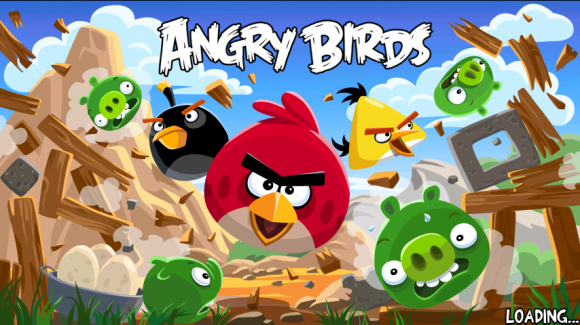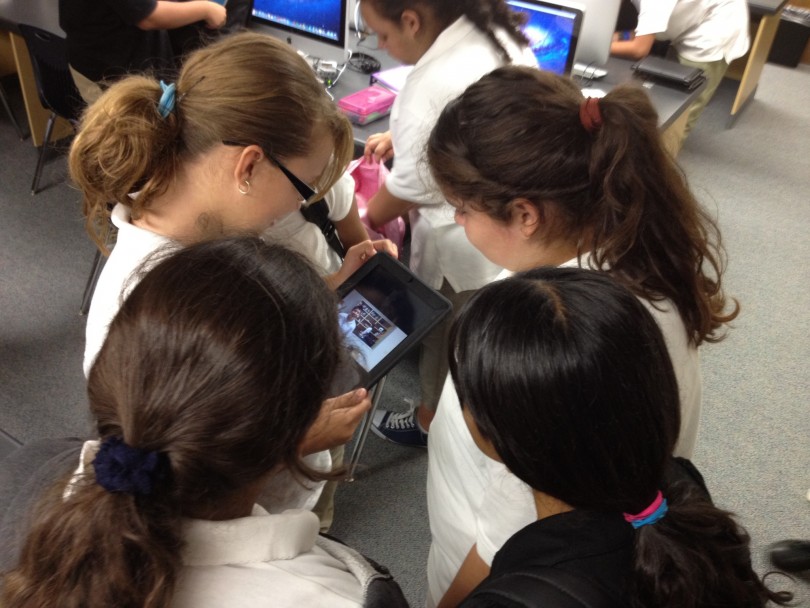aNewDomain.net — Will the Angry Birds ever become Happy Birds? Not in the high-tech dystopia that is being formed where the NSA indoctrinates and children learn to hack and parents fret over their family security. Who will spy on whom in the near future? Will kids be better than their parents at the surveillance game? I am betting on the children — they are the future after all, and our future is filled with hacking.
The family security game has been an issue for some time now with the recent Snowden files, released by the Guardian highlighting the NSA hack of the Angry Birds app, fueling the fire.
The GCHQ documents set out examples of what information can be extracted from different ad platforms, using perhaps the most popular mobile phone game of all time, Angry Birds – which has reportedly been downloaded more than 1.7bn times – as a case study. From some app platforms, relatively limited, but identifying, information such as exact handset model, the unique ID of the handset, software version, and similar details are all that are transmitted.”

Image credit: aNewDomain.net
CryptoKids and Security Awareness
The NSA has a website specifically for children, which helps U.S. youth understand the role of the NSA. The helpful characters from the Angry Birds are the CryptoKids, a band of tech-savvy animals. A hip turtle helps define the NSA’s mission:
‘In the world of diplomacy, knowing what your enemy is planning helps you to prepare,’ the turtle says. ‘But it is also important that your enemies do not know what you have planned. It is the mission of the National Security Agency and the Central Security Service to learn what it can about its potential enemies to protect America’s government communications.’ “

Image credit: nsa.gov/kids/
NYT blogger Michael Schmidt wrote:
Such an enthusiastic endorsement of the N.S.A.’s mission might seem particularly timely given the criticism directed at the agency since one of its former contractors, Edward J. Snowden, began leaking documents he had stolen from it. But T. Top and a troupe of eight other smiley-faced cartoon characters have been busy promoting the N.S.A.’s mission for the past nine years as part of a government wide attempt to make agencies more understandable to the public. With cartoon characters, interactive games and puzzles, the N.S.A.’s CryptoKids website for ‘future codemakers and codebreakers’ tries to educate children about spying duties and recruit them to work for the agency. As the website says: ‘It is never too early to start thinking about what you want to do when you grow up.’ “
Read more here.
What is the next level of children’s education for the NSA? It’s started strong and clear, but it looks a lot like indoctrination. Will it tell children that they know more than their parents, that they know better than their parents?
The Stasi told their kids: Why don’t you tell us what your parents are telling you, help us to spy on them.
The NSA “educators” appear to be pitting children against their parents by telling them they “know more” about security and about how to safely navigate our world.
Is it merely the tip of an iceberg? A top-down movement that mimics techniques that dictatorships have practiced throughout history? The exploitation and brainwashing of children to turn them into Stasi-style informants and enforcers against their own family and community?
The NSA, of course, claims they just want kids to be aware of cyber security. It seems only the most-gullible or “patriotic” of parents would believe such a sentiment.

Image credit: www.nsa.gov/kids/
How Young is too Young?
How young is too young for children and cyber security? For instance, is Def Con a good idea for kids? NPR‘s “All things considered ” reports:
At r00tz, a camp that takes place each year during the Def Con convention in Las Vegas, children learn to pick locks, hack smart TVs and, most important, how to take apart and understand the technology that surrounds them. The scene inside the camp a couple weeks ago was a bit of a madhouse — controlled chaos. Little kids everywhere. Brendan Herman was trying to program a machine to draw pictures on ping-pong balls, wearing a tinfoil hat. ‘To protect me from aliens,’ he said. And Herman, an elementary school student, fit right in. His counselors were adults covered in tattoos, explaining circuits and simple switches. Some campers milled around watching others, like tag team programmers. ‘I am just messing around with it trying to figure out stuff,’ said Owen Chilcoat, who sat hunched over a tablet, scrolling through code. ‘I’m trying to break it.’ On the other side of the room was Mark Risher, who created a website called SaaSCrack, dedicated to teaching kids to hack.”
What about Parents?
As suburban soccer moms watch, pry and spy their way into their kid’s online presence, the kids will eventually learn to defend themselves.
Many parents are taking the tactics of the surveillance state and using them to keep a virtual eye on their kids. I have heard multiple stories of parents installing key loggers on their kids’ laptops to keep an eye on what they’re typing in chat rooms and on Twitter and Facebook. Parents sneakily retrieve intel without having to “friend” their offspring, which sounds pretty similar to the NSA currently.
On a more-mundane level, there’s a disturbing trend of parents creating fake teen profiles on social networks to befriend their own teenagers. It’s the land of secret cameras in teddy bears and sewed-on GPS trackers in backpacks. Tracking is increasingly being slapped on teens when it comes time to learn to drive. Insurance companies love telematics boxes that record acceleration, speed and time of day, among any number of tools.
The most worrying analogy is that the role of a parent in relation to their own children is a natural parallel to the role of the state in the lives of adults. What a wonderful vision and future for us all.
Check the infographic below for some social cyber facts.
For aNewDomain.net, I’m David Michaelis.
Based in Australia, David Michaelis is a world-renowned international journalist and founder of Link Tv. At aNewDomain.net, he covers the global beat, focusing on politics and other international topics of note for our readers in a variety of forums. Email him at DavidMc@aNewDomain.net.

Image Credit: BuzzPoll














OUR own gubment spying on its citizens & training kids to go along is beyond 1984!
[…] In short, the NSA is working very hard to make sure that it can watch the electronic activities of anyone, anywhere on the planet. There are few, if any, inhibitions on where that searchlight can be aimed given the right authorization or lack of oversight. Foreign leaders like Angela Merkel are just some of the most visible targets of the NSA, which is busy building backdoors into software ranging from Skype and Gmail to hardware devices like your cell phone and desktop computer. And let’s not forget about Angry Birds. […]
[…] here & here to read […]